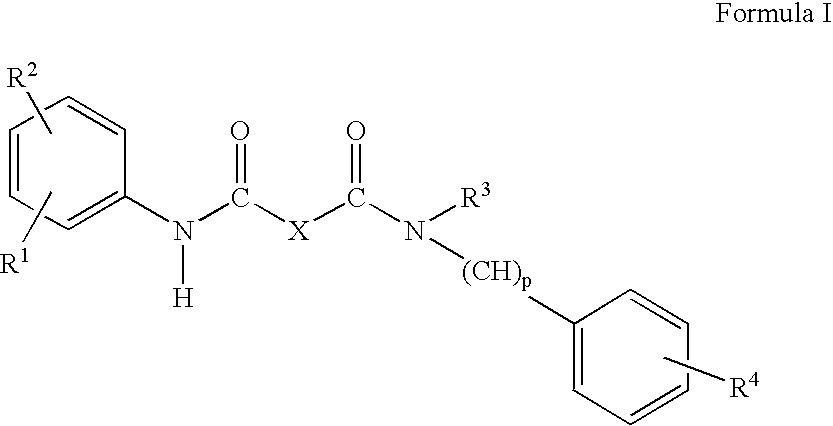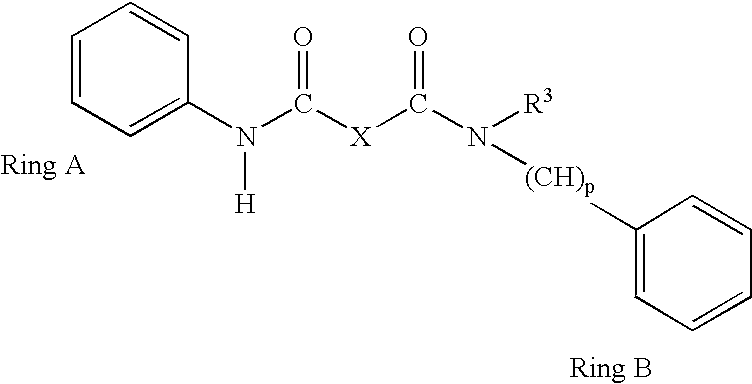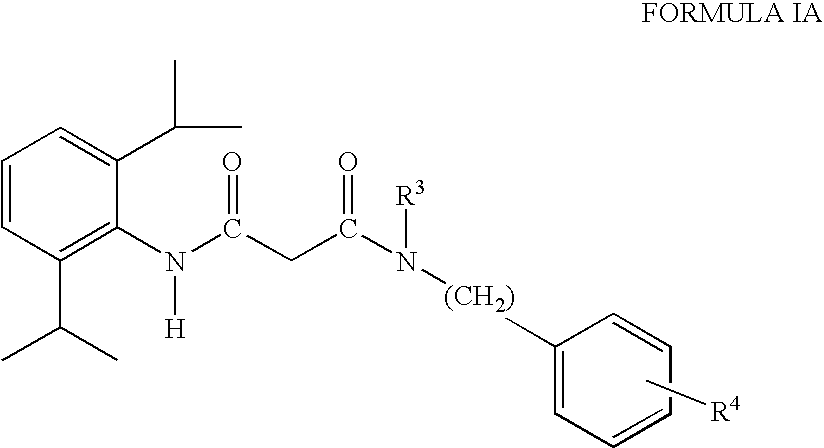Method for decreasing sebum production
a technology of sebum production and sebum sulfate, applied in the field of topical applications, can solve the problems of increasing acne, reducing attractiveness, and excessive sebum, and achieve the effects of reducing the amount of sebum secreted, alleviating a number of dermatological disorders and cosmetic complaints
- Summary
- Abstract
- Description
- Claims
- Application Information
AI Technical Summary
Benefits of technology
Problems solved by technology
Method used
Image
Examples
example i
Luderschmidt et al describes an animal model for testing whether compounds are capable of modulating sebum secretion. Arch. Derm. Res. 258, 185-191 (1977). This model uses Syrian hamsters, whose ears contain sebaceous glands. Compounds can be administered to these animals to determine if a test agent is capable of modulating sebum production A series of compounds known to inhibit ACAT were screened using methods analogous to those of Luderschmidt et al. Table IA shows the results obtained with selected diamides encompassed by Formula I above. Table IB shows the results obtained with a series of diamides not encompassed by Formula I. Formula IC shows the results obtained with other potent ACAT inhibitors that are not diamidess.
Tables IA-IC also reports the affinity of the compound for rat ACAT, measured as an IC50. These values were determined by measuring the ACAT-mediated transfer of tritiated oleic acid from acyl-CoA to cholesterol to give labeled cholesteryl oleate. The source...
PUM
| Property | Measurement | Unit |
|---|---|---|
| water permeability | aaaaa | aaaaa |
| concentration | aaaaa | aaaaa |
| time | aaaaa | aaaaa |
Abstract
Description
Claims
Application Information
 Login to View More
Login to View More - R&D
- Intellectual Property
- Life Sciences
- Materials
- Tech Scout
- Unparalleled Data Quality
- Higher Quality Content
- 60% Fewer Hallucinations
Browse by: Latest US Patents, China's latest patents, Technical Efficacy Thesaurus, Application Domain, Technology Topic, Popular Technical Reports.
© 2025 PatSnap. All rights reserved.Legal|Privacy policy|Modern Slavery Act Transparency Statement|Sitemap|About US| Contact US: help@patsnap.com



